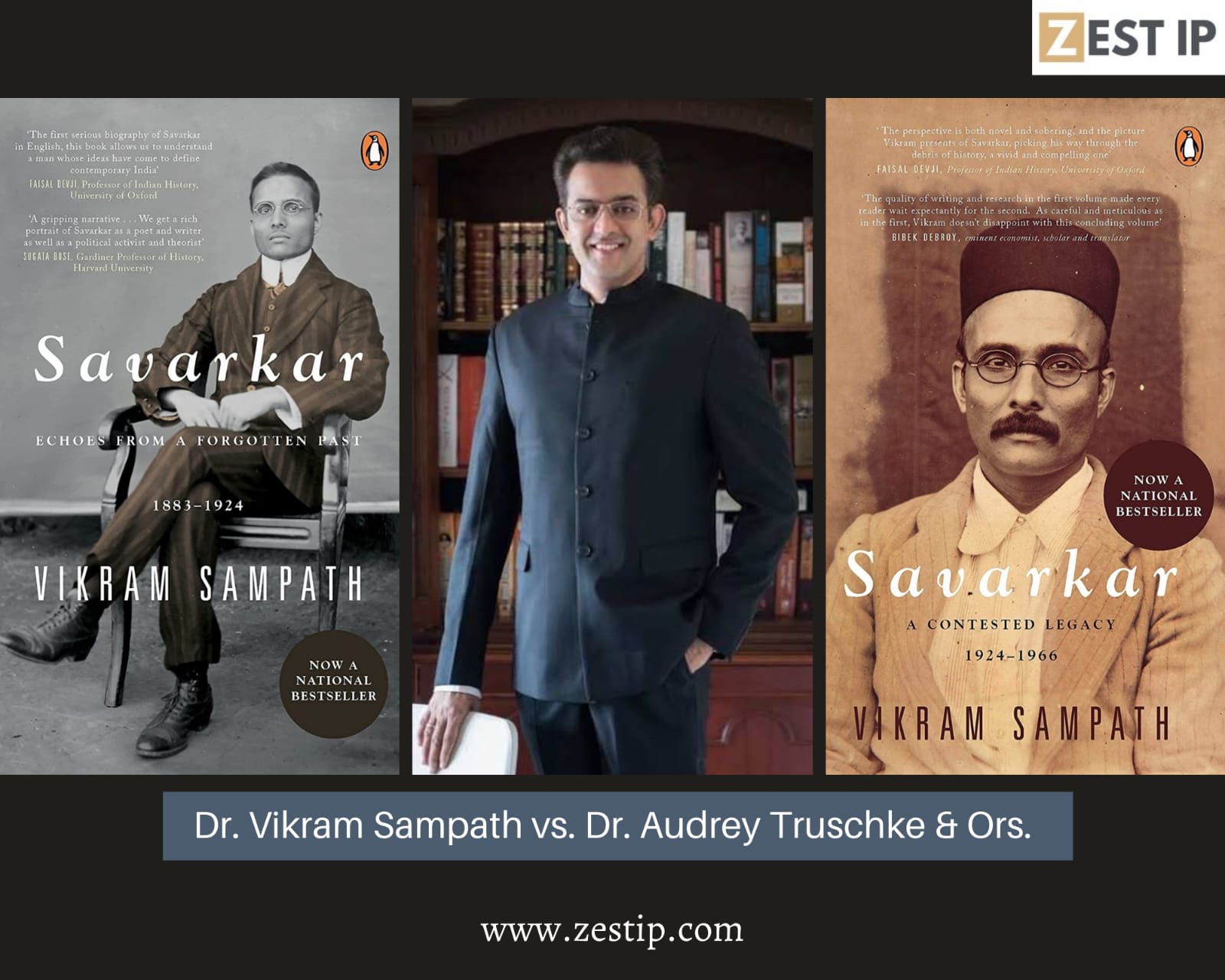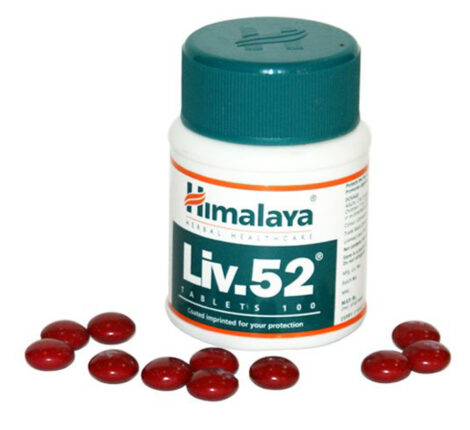Delhi High Court restrains historians from publishing defamatory letter alleging plagiarism by Dr. Vikram Sampath
Dr. Vikram Sampath filed a defamation suit in the Hon’ble High Court of Delhi, seeking an injunction against Dr. Audrey Truschke and Ors from publishing a jointly authored letter by them or any other defamatory material on social media platforms, mainly Twitter. The plaintiff also sought damages of Rs. 2 crores.
About the plaintiff:
Dr. Vikram Sampath is a famous Indian historian and the author of the two-volume biography of Sh. Vinayak Damodar Savarkar. He is also a fellow of Royal Historical Society, London, and Senior Fellow at Nehru Memorial Museum and Library, New Delhi. He has been awarded the prestigious Sahitya Akademi Yuva Puraskar and won New York’s ARSC Award for Excellence in Historical Research.
The ‘defamatory’ letter:
The alleged letter in the suit is authored jointly by the defendants (Dr. Audrey Truschke, Associate Professor of History, Rutgers University; Dr. Ananya Chakravarti, Associate Professor of History, Georgetown University and Dr. Rohit Chopra, Associate Professor of Communication, Santa Clara University) accusing the plaintiff of plagiarizing the works of Dr. Vinayak Chaturvedi, Dr. Janaki Bakhle and Dr. Paul Schaffel.
Some extracts from the letter dated February 11, 2022 read as:
“The essay in question, “A revolutionary’s biography: the case of VD Savarkar,” was published in Postcolonial Studies, a leading and widely read journal, fully four years earlier. While Dr. Sampath does cite this essay, he does so in passing without acknowledging that the central thesis is largely borrowed from Dr. Chaturvedi’s earlier (and pioneering) essay. He also lifts some sentences verbatim (without attribution) and uses larger chunks of barely paraphrased material, in a manner we are familiar with from callow undergraduate students who seek unsuccessfully to evade plagiarism detection software and our own expertise.”
“The sheer number of lifted sentences and ideas in a five-page essay was alarming enough that we then decided to see if Dr. Sampath’s recently published two-volume biography of Savarkar included similar lapses of academic ethics. In this case, we found that apart from established scholars like Dr. Chaturvedi, deceased eminent historians like R.C. Majumdar, Dr. Sampath did not spare even the work of a deceased undergraduate from his predations. The first paragraph is from the award-winning undergraduate thesis of Paul Schaffel, submitted to Wesleyan University in 2012 and written under the direction of Dr. William Pinch, while the second is from Dr. Sampath’s first volume of his biography of Savarkar, on the basis of which he was admitted to the Society.”
The defendants requested the President of the Royal Historical Society to revisit the membership of Dr. Sampath in the society.
Contentions:
Plaintiff:
To the plagiarism allegations, Dr. Sampath stated that his book was reviewed by Dr. Janaki Bakhle in the ‘India Today Magazine’ and had no grievance about any plagiarism. He further said that he had given due credit for all the extracts of works of the persons mentioned above in his book.
The publication of the defendant’s letter led to the circulation of defamatory tweets on various social media platforms, which caused harm to Dr. Sampath’s reputation as a known academic.
Defendants:
The counsel for Dr. Rohit Chopra (Def 3) stated that the alleged plagiarism in the said latter is more than mere copyright infringement, thus opposing the grant of ad-interim injunction to the plaintiff.
One of the defendants in the suit is the social media platform, Twitter which submitted that the platform is only an intermediary. If URLs of the alleged defamatory posts are provided to them according to Court orders, they will take down those tweets.
Order
While granting ad interim injunction in favor of Dr. Vikram Sampath, Justice Amit Bansal of the Hon’ble Delhi High Court, restrained defendants 1- 3 (joint authors of the letter) from posting the letter on Twitter or any other online/offline platforms.
Continued infringements
Subsequently, the plaintiff came across another letter dated February 15, 2022, addressed to the President of the Royal Historical Society, London, the subject of which reads as ‘Further Examples of Potential Plagiarism in the work of Dr. Sampath.’ The defendants in this letter accused Dr. Sampath of further plagiarisms about his two-volume biography of V.D Savarkar. The defendants have also stated that they have contacted the affected scholars whose verses have been plagiarized by Dr. Sampath. A few authors that the defendants have mentioned in the sources of the letter are Sukeshi Kamra, Kama Maclean, R.C Majumdar, Manohar Malgonkar, and I.J Catanach.
Dr. Audrey Truschke, the main defendant in the defamation suit, also posted the letter on her Twitter handle. Dr. Audrey also mailed Dr. Sampath dated February 14, 2022, in which similar plagiarism allegations have been made against him.
Given the same, Justice Amit Bansal admitted that the plaintiff has made out a prima facie case, and the balance of convenience is also in favor of him. Consequently, he granted an ad interim injunction in his favor. The Court directed defendant no. 1- 3 to stop posting the e-mail and letter as mentioned above or any other defamatory material regarding the plaintiff on Twitter, Facebook, or any other online/offline platforms. In addition, the Court directed Twitter to take down the 5 URLs provided by the plaintiff concerning the defamatory tweets within 36 hours of the order.
Recent developments:
Dr. Audrey Truschke, on February 24 2022 tweeted an open letter of support by 75+ alleged scholars in help of Drs. Ananya Chakravarti, Audrey Truschke, and Rohit Chopra’s academic freedom and service to the profession calling attention to Dr. Vikram Sampath’s plagiarism. Further, Dr. Audrey, in a series of tweets, quoted excerpts from the open letter, which reads as:
“The three scholars stand by the findings of their review (evidence in the linked letters to RHS). This is a matter of not only academic malfeasance as the evidence clearly shows; but also a matter of academic ethics and ethical responsibility.”
“Our colleagues performed an important yet routine academic service for the common good which should not provoke such a disproportionate response.”
“However, Dr. Sampath’s supporters have mobilized right-wing social media networks and marshaled political allies in India and the US to harass, threaten, and intimidate these scholars for what constitutes academic free speech, proper ethics, and service to the profession.”
The form is now no longer accepting responses for security purposes, as stated by Dr. Audrey. Interestingly, many people denied signing the document whose name appeared on the list of signatures, like Senior leader Sanjay Raut of Shiv Sena party, Indian historian Rama Chandra Puram and many others.
Despite orders of the Delhi High Court, the alleged published letters by the defendants are still doing rounds in the form of an ‘Open letter from concerned colleagues and scholars in support of Drs. Ananya Chakravarti, Audrey Truschke and Rohit Chopra’. The letter containing several signatures of ‘concerned colleagues’ clarified that the ongoing issue is a matter of upholding ethical standards and is not about personal vendetta as none of the scholars who have performed this review has ever crossed paths with Dr. Sampath.
Remarks:
Plagiarism is a severe offense in today’s time. As almost all resources are now available in the e-form, plagiarism and plagiarism detection have become unchallenging. Though there is no direct referencing of plagiarism in the Indian Copyright Act, Section 57 of the Act allows the author an exclusive right. The original author can claim authorship in work and restrain someone from distortion, mutilation, modification, or any prejudicial act to the author’s honor or reputation. Further, copyright infringement is also punishable for a period not less than six months. So, rather than plagiarizing someone’s researched documents, it is advisable always to give proper credits to the author.
Disclaimer: This article is intended to provide general guidance to the subject matter. It does not contain legal advice. For any specific advice/corrections, write to [email protected]
© ZEST IP




